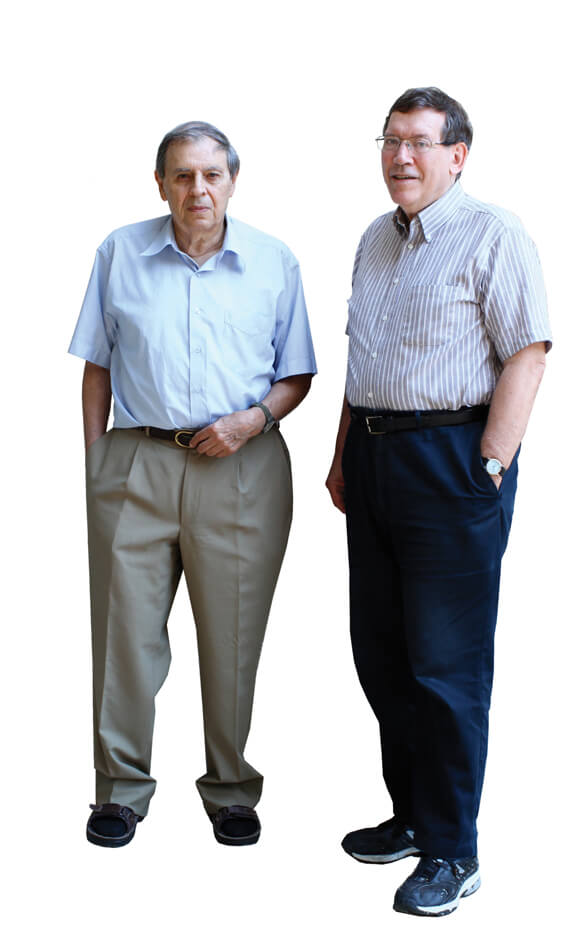Tel Aviv University is also a partner in the group that will receive a grant from the European Union, and researchers on its behalf will engage in bioinformatics

In a ceremony held on Thursday in Brussels, a European project was launched, within the framework of which infrastructures will be established for integrative research in the field of structural biology. The Weizmann Institute was chosen as one of the seven core centers of this project.
The integrative research infrastructures in the field of structural biology (Integrated Structural Biology Infrastructure, for short: Instruct), intended for biomedical research, are one of 40 research infrastructure projects established by the European Strategy Forum of Research Infrastructures (ESFRI). Their goal is to provide researchers from across Europe with access to advanced equipment, innovative technologies and skilled personnel in the fields of structural biology and cell biology. In this way, European scientists will be able to maintain a competitive advantage, and lead research in this vital field.
Most European countries are partners in the Instruct project, which is led by seven main core centers, of which the Weizmann Institute is one, alongside prestigious research institutions in England, Italy, France and Germany. In addition, Tel Aviv University was selected as an affiliated institution with a specific specialization in the field of bioinformatics.
"Israeli scientists have been playing a leading role in the field of structural biology for many years," says Prof. Yoel Sussman from the Weizmann Institute of Science, who will head the Israeli Instruct Center. "This was well demonstrated with the winning of Prof. Ada Yonat from the Weizmann Institute of Science with the Nobel Prize in Chemistry for 2009, for her pioneering work in deciphering the structure of the ribosome."
To understand in depth how the living cell functions, one must know the details of the three-dimensional structure of the proteins and nucleic acids that make it up, understand the mutual relationships between them, their organization within the cell and their dynamics. This much information cannot be obtained through a single scientific discipline.
"At the Weizmann Institute of Science, world-class research programs have been developed in a number of relevant fields, including electron microscopy, X-ray crystallography, nuclear magnetic resonance, bioinformatics and structural proteomics. In addition to this, the Israel Structural Proteomics Center (ISPC - Israel Structural Proteomics Center) was established at the Weizmann Institute, which plays an important role in the integration and coordination of the information obtained from these diverse disciplines," says Prof. Sussman. The Center for Structural Proteomics was founded by scientists from the Weizmann Institute of Science, headed by Prof. Sussman, who directs the center, with the aim of providing scientists with an efficient infrastructure for determining the spatial structure of proteins.
As a mirror image of the idea that guides the Center for Structural Proteomics, Instruct will merge the information obtained from various methods and technologies in the field of structural biology, with the aim of providing scientists with an accurate and dynamic picture of key processes in the cell - both in the whole organism and in cells in vitro, and on all scales: starting with large molecules (such as proteins and -DNA), through clusters of molecules and cellular organelles, to the complete cell. Such knowledge will make a significant contribution to understanding how to treat various diseases.
"The cost of advanced equipment in the field of structural biology is beyond the ability of most research institutions. The European project will allow laboratories across Europe to gain immediate access to advanced technologies, methods, and services. Israeli scientists and their European colleagues will now have access to means they could only dream of until now," says Prof. Gideon Schreiber, deputy director of the new center and of the Israeli Center for Structural Proteomics. "We hope that our membership in the new center will encourage scientific collaborations between laboratories from around Europe and the Weizmann Institute of Science - and other Israeli research institutions, as well as attract research students, post-doctoral researchers, and visiting scientists from around the world."
The signing ceremony marks the official launch of the project. Prof. Chaim Gerti, Vice President of the Weizmann Institute of Science, signed on behalf of the Weizmann Institute of Science, Tel Aviv University and the State of Israel.
